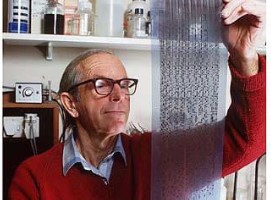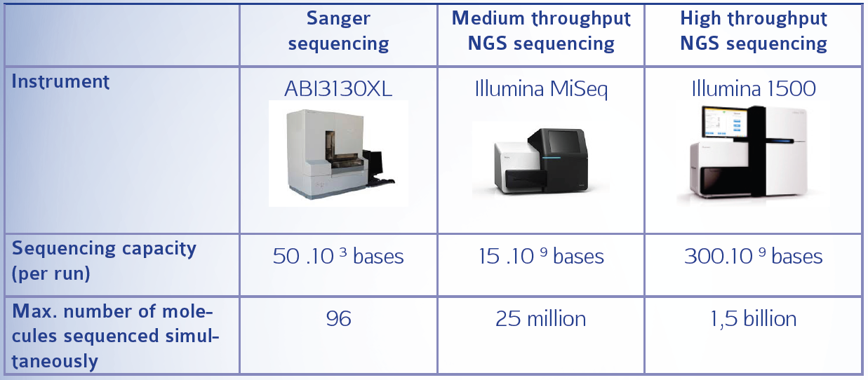At the forefront of innovation since 1967, Cerba is at the heart of the Cerba HealthCare Group's innovation strategy.
« Innovation is the hallmark of our laboratory. Within the Cerba HealthCare Group, we are committed to making this innovation accessible to as many patients as possible »
Sylvie Cado
CEO at Laboratoire Cerba
« Through its tradition of innovation and excellence, Laboratoire Cerba is more than ever at the heart of health issues to invent the clinical pathology of tomorrow alongside health professionals. »
Jérome Sallette
Innovation Director at Cerba Healthcare
At the forefront of innovation since 1967, Cerba is at the heart of the Cerba HealthCare Group's innovation strategy. This strategy is divided into three areas: personalized medicine, women's and children's health and development through innovation. Putting biology at the heart of the healthcare pathway is a major challenge to provide clinicians with the most effective diagnostic tools. This involves the development of new tests and new techniques, the information and training of healthcare professionals and patients in these new diagnostic modalities.
With more than 50 new tests made available every year to clinicians and local laboratories, Laboratoire Cerba has a dynamic and innovative test pipeline in all medical disciplines to offer a comprehensive range of care, whatever the techniques. This bias is particularly important in the context, for example, of the development of syndromic approaches to pathologies, but also in precision medicine, which requires having all the technical and medical expertise under one roof, or even in the development of preventive and predictive approaches.
Laboratoire Cerba, through the Cerba HealthCare Group's proximity laboratory networks, provides a vital relay to make scientific and medical innovation more accessible to as many patients as possible. This involves differentiating services to make the medical biology experience closer, more comfortable and more meaningful for the patient, by listening to him and informing him about new tests and new diagnostic modalities.
Laboratoire Cerba is at the heart of an ecosystem of academic teams, start-ups and large groups with which it establishes innovative partnerships at an international level. These partnerships, which materialize through research collaborations, technology transfers, support for the validation of new tests and their implementation in diagnostic practice accelerate the provision of new diagnostic modalities and help to advance scientific and medical knowledge.
 DNA sequencing by enzymatic synthesis, known as the «Sanger method» remained the most widely used procedure in molecular genetics laboratories for more than 30 years. Nonetheless, this technique has a number of limitations in terms of speed, detection sensitivity for minority variants and ultimately in capacity and cost of analysis in the light of the ever-increasing demand for sequencing.
DNA sequencing by enzymatic synthesis, known as the «Sanger method» remained the most widely used procedure in molecular genetics laboratories for more than 30 years. Nonetheless, this technique has a number of limitations in terms of speed, detection sensitivity for minority variants and ultimately in capacity and cost of analysis in the light of the ever-increasing demand for sequencing.

The use of NGS techniques opens up a wide range of new applications and investigations in constitutional and somatic genetics.
Early as 2013, Laboratoire Cerba has taken advantage of these innovations to develop its screening test for trisomies 13, 18 and 21 by sequencing foetal circulatory DNA. At the beginning of 2015, the introduction of the first tests using NGS authorised by the FDA and dedicated to the analysis of the CFTR (cystic fibrosis) gene confirmed the interest and the impact of this tool in the medical biology lab.
Armed with a growing body of clinical experience, Laboratoire Cerba now intends to extend the use of NGS to new applications:
• whole exome sequencing - useful for the diagnosis of rare diseases of genetic origin
including developmental disorders and highly heterogeneous intellectual disabilities,
• sequencing of several gene panels in Onco-Haematology.